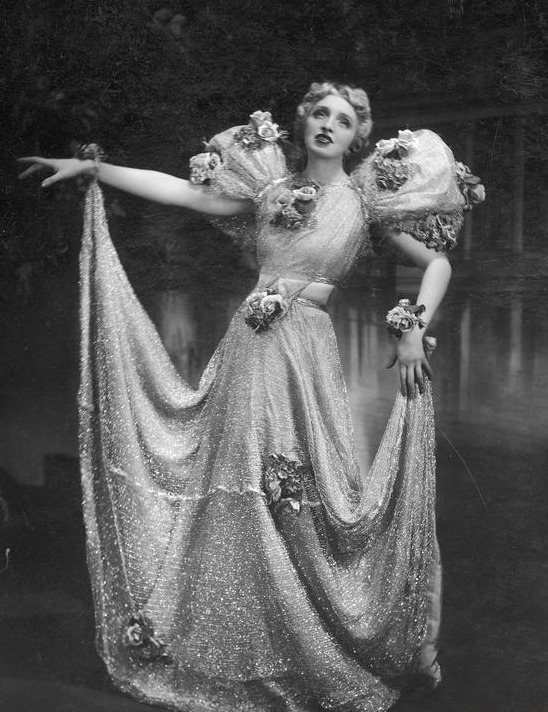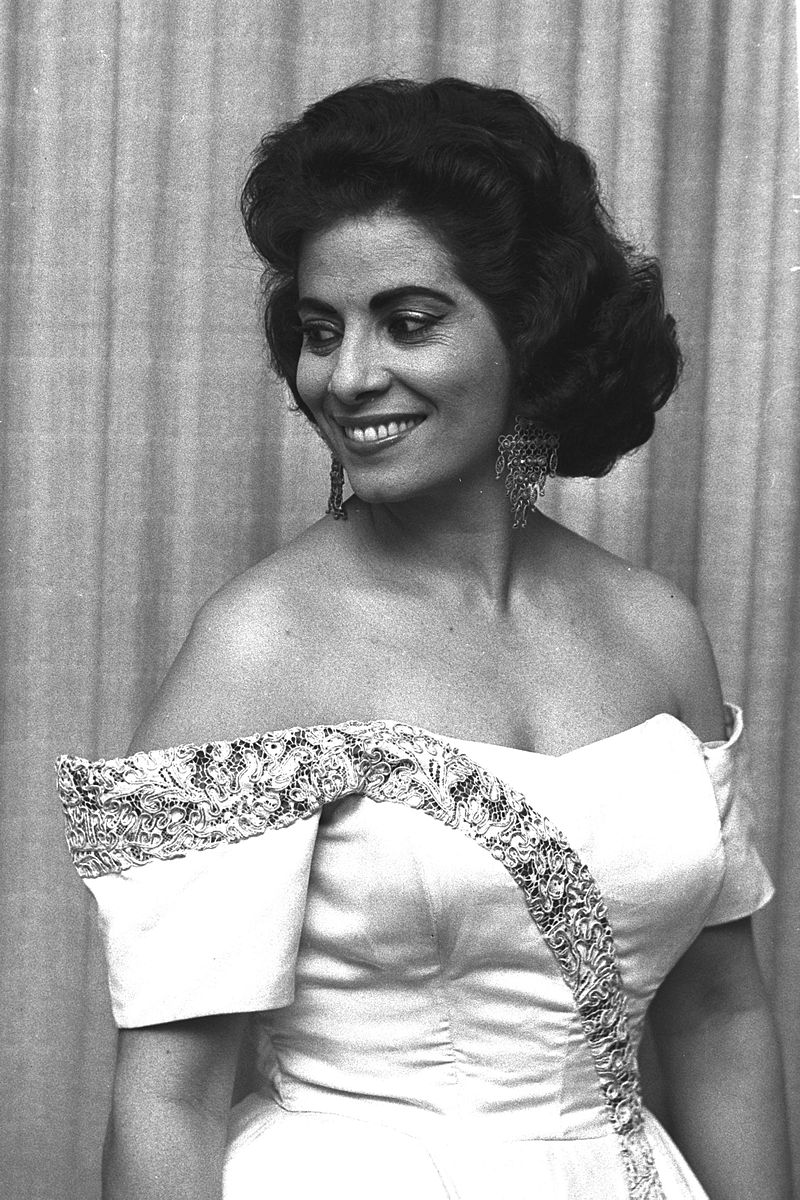12th February 2021 – Shabbat is almost here
And today we’ll learn about a woman whose passion led her to devote her life to the Yiddish songs and other sides of the Jewish culture from Poland: Olga Mieleszczuk
 Hello, how are you? I hope very well. I am exhausted after a morning with meetings, phone calls and many things going on and I’m coming to you a little later than usual. Did you miss me?
Hello, how are you? I hope very well. I am exhausted after a morning with meetings, phone calls and many things going on and I’m coming to you a little later than usual. Did you miss me?
In this edition we will listen to a piece recorded in the XXI century. Yes, and the artist is alive. She is the singer, accordeonist and folklorist Olga Avigail Mieleszczuk. Her story is very interesting. We are about the same age, in our early forties. She was born in a Catolic Polish family and grew up in the quarter of Prague, in Warsaw, and she didn’t know about the existence of Jews until she was in high school. This is quite shocking. It is astonishing to see the extent to which the Jewish presence was erased in this country.
But Olga has dedicated her life to Yiddish music and other manifestations of Jewish culture in Poland. She now lives in Israel. What has been her path? Let’s find out more about her before enjoying a beautiful piece of music.
| Share the joy of music and learning with your beloved ones. Share MBS. Thank you in advance. |
Olga’s path

I found the information for the introduction in this interview from the website of Yiddishbookcenter.org. It lasts almost one hour. It’s interesting, so I recommend you to watch it. I’ll still include a short bio here.
This portrait is from her website, from where I also got this summary of her bio. Don’t miss a visit”
Olga Mielesczczuk began studying music as a child. She has studied classical music and holds a Master’s degree in Cultural Anthropology (Warsaw University). Her first contact with Yiddish was in the workshops by Teresa Wrońska.
In 2013 Olga started the project “Jewish Polesye” and made her first album with songs from the repertoire of the Jewish folk singer from the 1930’s Mariam Nirenberg. You can listen to a preview of several recordings by her, here.
The first time I learnt about Olga was with this project about Polesye, of which she has shared many things in Youtube. Wonderful videos with very nice pictures! This one is an example.
Her second album was “Li-La-Lo”, that was the name of a musical cabaret set in Tel Aviv in 1944, by the pianist and composer Moshe Wileński and poet Natan Alterman. You’ll read their names below, as they are two of the three authors of the songs (they are two) that we will listen to today.
Her third project “Yiddish tango” was born from the cooperation with leading Polish tango musicians Tango Attack. They created new arrangements for the pre-war Warsaw tangos.
About the two songs by Polish composers inspired by the music from Yemenite Jews
One of the things I love most about doing Music Before Shabbat is opening up new connections and learning. That’s why I’m so grateful when an artist and/or disseminator (I think Olga fits both concepts) explains his/her sources and opens new threads. About this recording, Olga explains in the description of the video many interesting things. I copy her words and include some comments. Some of these people will be the protagonists in future editions.
“Composers: Henoch Kohn, Moshe Wileński, Hebrew lyrics: Natan Alterman
Vocal: Olga Mieleszczuk, Lira: Boaz Galili, Saz: Ittai Binnun, video: Marcin Koźlinski
Arrangement: Olga Mieleszczuk”
Moshe Wileński and Natan Alterman are mentioned above as the creators of the Li-La-Lo cabaret. Wileński was born in Warsaw in 1910. There is a biography of him on the website of the National Library of Israel. He moved to Tel Aviv in 1932 and his career in music was very successful. His work is a landmark. You may have listened to some other songs by him, like for instance, this one sung here by Ofra Haza, Rachamim. Or this, Balada Al Maayan Ve`Yam, performed here by Avi Avital and Omer Avital. And Henech Kohn? He was also a Polish composer, as well as disseminator and collector of Yiddish folk songs.
 And Henech Kohn? You can find his name written as “Henoch” too. He was also a Polish composer, as well as disseminator and collector of Yiddish folk songs. He was born in 1890 and died 1972 (according to VIAF). I haven’t found a proper bio of him, but yes several sources about his work, like this manuscript from the Museum of Jewish Heritage, or his mention in the autobiography of Sholom Secunda, that you can find here.
And Henech Kohn? You can find his name written as “Henoch” too. He was also a Polish composer, as well as disseminator and collector of Yiddish folk songs. He was born in 1890 and died 1972 (according to VIAF). I haven’t found a proper bio of him, but yes several sources about his work, like this manuscript from the Museum of Jewish Heritage, or his mention in the autobiography of Sholom Secunda, that you can find here.
And Natan or Nathan Alterman? He was also born in Warsaw in 1910 and moved to Tel Aviv in 1925. He was mainly a poet and wrote also other genres. There is a brief bio on the website of the JewishVirtualLibrary.org.
Let’s continue with Olga’s words.
“Two combined songs “a la orientale”, one was sung by Hanka Ordonówna in Warsaw in 30-thies and second by Soshana Damari in late 40-thies in Tel Aviv. Both written by Polish composers, inspired by Jemen Jews folklore. Great example of orientalism.”

The lady in the picture, who almost looks like a doll (public domain, taken from here) is Hanka Ordonówka. She was a star and you can easily find many videos of her in Youtube, like this one, for instance.
And Soshana Damari? Ah, I personally find this one more interesting and I will dedicate a future MBS to her. In the meantime, enjoy her beautiful smile in this picture (also of public domain, taken from here). And take a listen to her voice, here.
And finally, Olga shares a few interesting tips about the composers:
“Composer of the first one Henoch Kohn came from Lodz and was part of artistic group Yung Yidish. He composed music to the famous movie The Dybbuk based on the celebrated play of the same name by S. Ansky.
Second was written by Moshe Wileński, who left Warsaw already in 30-thies and immigrated to Palestine. Together with Natan Alterman – also from Warsaw – they created first Hebrew cabaret Li-La-Lo (For me, for her, for you), which was inspired by cabarets from Warsaw.”
And the music piece!
Click the picture to listen to the Polish songs of Jemenite jews by Olga Mieleszczuk:
Shabbat Shalom.
Araceli Tzigane | Mapamundi Música
